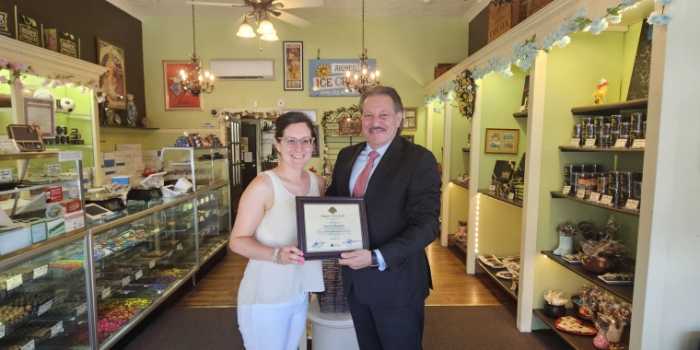,The International Monetary Fund (IMF) said on Jan. 21 that the Eastern Caribbean Currency Union (ECCU) region faces a protracted recovery after being hit hard by the global economic downturn.
After concluding its 2010 Discussion on Common Policies of ECCU member-countries, the IMF executive board said the global financial and economic crisis has also “exposed areas of significant weaknesses, notwithstanding reforms implemented by a number of member-countries.”
“The growing fiscal deficits, unsustainable debt levels, and stress in the financial sector need to be addressed forcefully to maintain confidence in the currency union and the currency board,” it said.
But the IMF directors said they were “encouraged by the authorities’ commitment to implement comprehensive measures to stabilize the fiscal and financial sectors and put the ECCU economies on a more sustainable growth path.”
“Directors concurred that the urgent challenge is fiscal consolidation,” the statement said.
“They emphasized that the currency union needs to be supported by consistent fiscal policies across all its members, buttressed by an appropriate institutional framework for policy coordination,” it added.
The IMF directors welcomed the authorities’ decision to translate the current debt target of 60 percent of Gross Domestic Product (GDP) by 2020 into annual primary surplus targets, stressing that “implementation will be key.”
They said the required surpluses will vary by country, depending on the member’s initial conditions.
“Prioritizing public investment and implementing measures to enhance expenditure efficiency and contain current spending, while protecting the poor and vulnerable, will be important elements of the consolidation,” they said.
The directors underscored that safeguarding financial sector stability should be a “critical undertaking,” in view of the anticipated slow economic recovery and the large government exposures of some banks.
“Along with fiscal consolidation and reduced public financing through the banking system, enhanced crisis preparedness and preemptive resolution of weak indigenous banks will be important,” they said.
The directors also called for the strengthening of regulation and supervision of the nonbank financial sector, adding that “further progress should be made in enacting and harmonizing financial sector legislation and in setting up single regulatory units.”
They welcomed the announced steps to resolve the British American Insurance Company (BAICO), and urged the authorities to take “a more decisive and stepped-up regional approach” in the case of the Colonial Life Insurance Company (CLICO), in close cooperation with the home supervisory authorities.
They stressed that any resolution strategy should minimize fiscal costs.
The directors agreed that the currency board arrangement has provided a “strong anchor and continues to be an appropriate exchange rate regime.”
The IMF said growth in the ECCU, which remained subdued in 2010, was expected to recover “only slowly” in 2011.
Inflation, which declined sharply to an average of 0.8 percent in 2009, reflecting the widening output gap and falling prices of imported food and energy, is expected to revert gradually to its long run average of about 2 percent, given the anchor of the currency peg, the Washington-based financial institution said.
It said the overall fiscal deficit has increased sharply, while extremely high and rising regional public debt in the context of a regional currency board arrangement has “exacerbated the region’s vulnerability to shocks.”
Reflecting in large part the fiscal adjustments envisaged under IMF-supported programs with Antigua and Barbuda and Grenada, it projects the fiscal deficit for the region to decline, but remains elevated at close to 4.5 percent of GDP for 2010–15.
The IMF, however, said public debt will stay above 100 percent of GDP through 2015.
It said weaknesses in the ECCU financial sector have been “aggravated by the contraction of economic activity in the region and the collapse of the Trinidad and Tobago-based CL Financial Group on insurance companies, BAICO and CLICO operating in the ECCU.”
The IMF said the newly-ratified Organization of Eastern Caribbean States (OECS) Treaty would “pave the way for the free movement of people, goods, services, and capital among participating countries, and strengthen the institutional set up of a full-fledged economic and monetary union.”

























